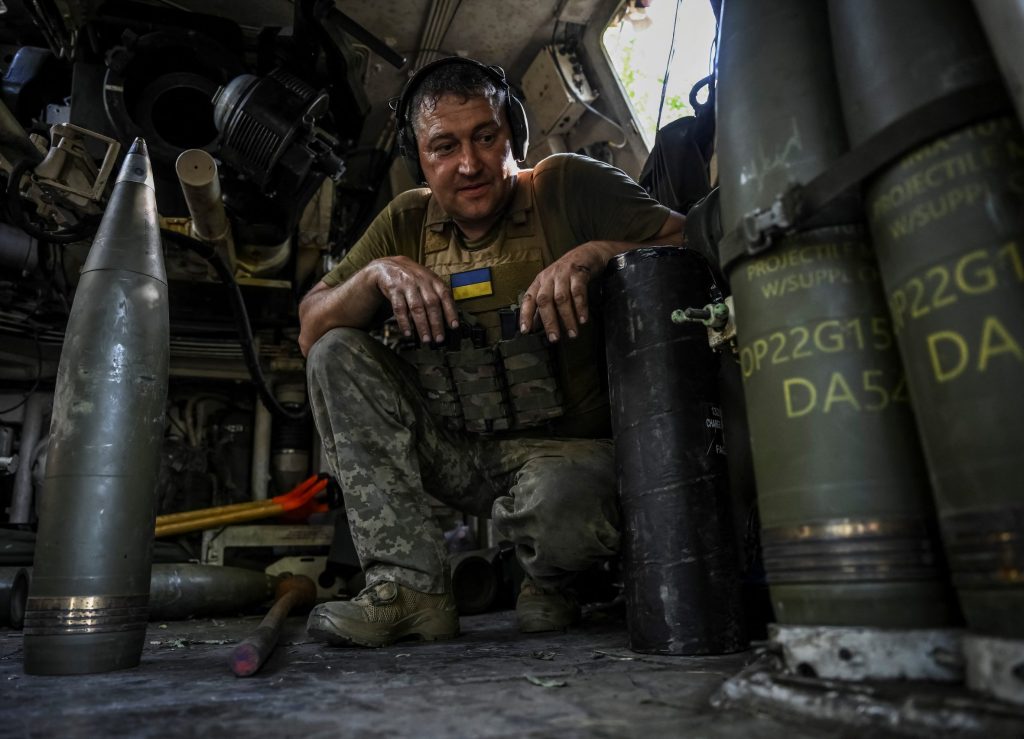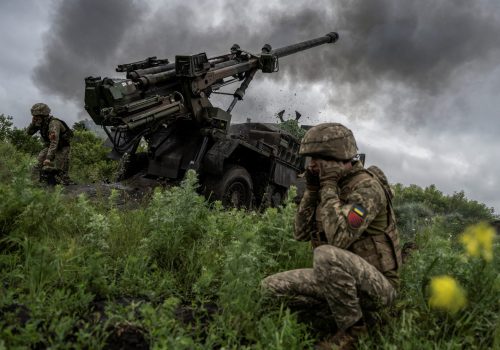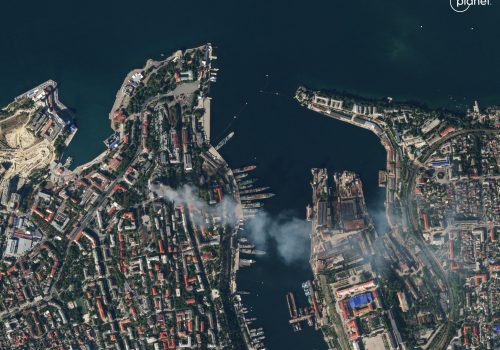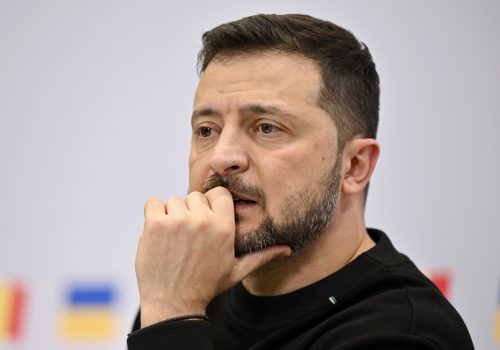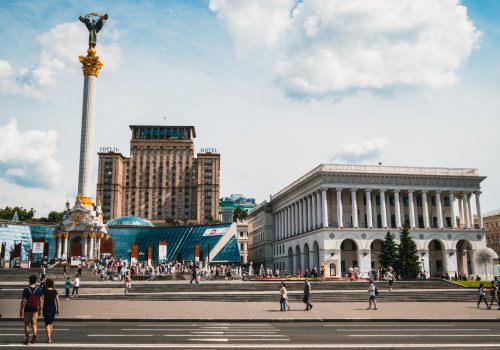
Arming Ukraine is cheap compared to the far higher price of Russian victory

How much longer can the West afford to continue supporting Ukraine? As Russia’s invasion enters its twenty-first month, this is the question growing numbers are now asking in Washington DC and other Western capitals.
Concerns over mounting expenses are understandable but shortsighted. While Ukraine has so far received hundreds of billions of dollars in military aid, this figure pales into relative insignificance when compared to the far higher price the international community will have to pay in the event of a Russian victory.
A wide range of Western politicians and commentators have already made the case for the cost-effectiveness of funding the Ukrainian war effort, with many noting the dramatic reduction in Russia’s military potential as a result of crippling losses suffered in Ukraine. In May 2023, US Senator Lindsey Graham described American military aid to Ukraine as “the best money we’ve ever spent.”
US Senate Minority Leader Mitch McConnell has recently echoed Senator Graham’s sentiments. “No Americans are getting killed in Ukraine. We’re rebuilding our industrial base. The Ukrainians are destroying the army of one of our biggest rivals. I have a hard time finding anything wrong with that,” he commented on October 20.
McConnell’s arguments are certainly persuasive. However, in order to fully appreciate the true value of continued support for Ukraine, it is necessary to contemplate what would happen if Western military aid came to an end and Vladimir Putin succeeded in subjugating the country.
Subscribe to UkraineAlert
As the world watches the Russian invasion of Ukraine unfold, UkraineAlert delivers the best Atlantic Council expert insight and analysis on Ukraine twice a week directly to your inbox.

-
-
-
This field is for validation purposes and should be left unchanged.
The most immediate costs of a Russian victory would be felt by the Ukrainian population, of course. With much or all of Ukraine under Russian control, the war crimes already witnessed in occupied areas of the country would multiply. Tens of thousands would be executed or imprisoned, while millions would be subjected to forced deportation. These horrors would create major humanitarian challenges for the wider European community, with a massive new wave of Ukrainian refugees flooding across the border into the EU.
Vindicated and emboldened by victory in Ukraine, Putin would almost certainly seek to go further. The Russian dictator has already made clear that he sees the reconquest of Ukraine as part of a broader mission to correct the perceived injustice of the Soviet collapse and the fall of “historical Russia.” His next targets would most likely be Moldova, Armenia, and the countries of Central Asia. If the West proves unwilling or unable to stop Russia in Ukraine, there will be little to deter further aggression against smaller and more vulnerable former Soviet republics.
With NATO discredited by the fall of Ukraine, Putin would then be tempted to test the resolve of the alliance in a more fundamental manner by threatening the Baltic states. Would a demoralized and divided NATO go to war with a resurgent Russia over an isolated incident on the Estonian or Latvian border? If not, Putin would exploit this weakness. Failure to defend the territorial integrity of a NATO member state would spark the rapid unraveling of the entire alliance, plunging the whole of Europe into chaos.
Eurasia Center events

Even if the worst case scenario of a direct military confrontation between Russia and NATO could be avoided, a Russian victory in Ukraine would inevitably oblige Western leaders to boost defense spending to levels not witnessed since the end of the Cold War. This would require sums far in excess of the money currently being allocated to Ukraine. Outgoing US Joint Chiefs of Staff Chair General Mark Milley recently warned that a Russian victory in Ukraine would lead to a potential “doubling” of defense budgets. Others have suggested the cost would be much higher, noting the need to establish and indefinitely maintain a dramatically increased military presence in Central and Eastern Europe.
While the direct financial and security costs of a Russian victory in Ukraine are already alarming, the geopolitical price would be even greater. The recent escalation in Israel is a direct consequence of the West’s indecisive response to Russia’s attack on Ukraine. If Putin’s invasion is seen to succeed, other authoritarians will be encouraged and international instability will spread even further. The entire world will face decades of insecurity marked by mounting militarism, mutual suspicion, and multiplying acts of international aggression. The opportunity cost to the global economy will be measured in the tens of trillions.
None of this is inevitable. On the contrary, it can all be avoided by providing Ukraine with the tools to defeat Russia. The Ukrainians are ready and able to do the fighting themselves; all they ask is for their international partners to stop dithering and deliver the necessary weapons without delay.
Opponents of continued military aid to Ukraine often say it is too expensive. In reality, it is infinitely cheaper than the alternative. They also claim supporting Ukraine risks provoking World War III, but in truth, nothing is more likely to provoke Putin than Western weakness.
With his genocidal invasion of Ukraine, the Russian dictator has burned his last remaining bridges and is now completely committed to confrontation with the West. He will not stop until he is stopped. The longer Western leaders delay, the higher the price they will pay.
Peter Dickinson is editor of the Atlantic Council’s UkraineAlert service.
Further reading
The views expressed in UkraineAlert are solely those of the authors and do not necessarily reflect the views of the Atlantic Council, its staff, or its supporters.

The Eurasia Center’s mission is to enhance transatlantic cooperation in promoting stability, democratic values and prosperity in Eurasia, from Eastern Europe and Turkey in the West to the Caucasus, Russia and Central Asia in the East.
Follow us on social media
and support our work
Image: A Ukrainian serviceman prepares to fire a M109 self-propelled howitzer towards Russian troops, amid Russia’s attack on Ukraine, in Donetsk region, Ukraine. August 7, 2023. (REUTERS/Viacheslav Ratynskyi)
